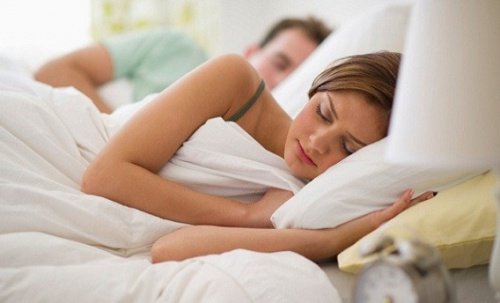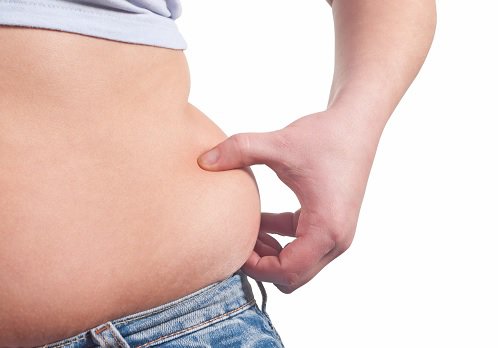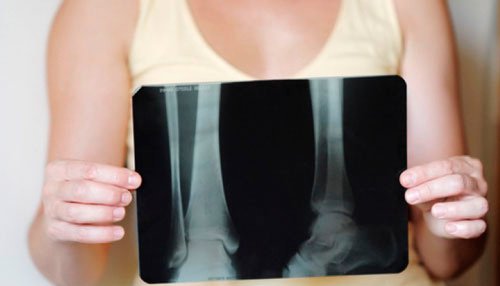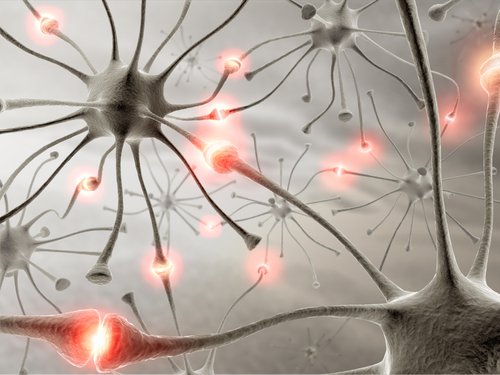10 Facts About Sleep That You Should Know


Written and verified by psychologist Valeria Sabater
Today in our blog we want to invite you to discover 10 fascinating facts about sleep that you will certainly find interesting. And remember, a continual lack of sleep is something that we must treat in a proper way.
Never limit yourself to exclusively using the classic sleeping pills or benzodiazepines, since sometimes a simple change in our daily habits or diet can give us excellent results.
Interesting facts about sleep
1. Lack of sleep can cause weight gain

A recent study published in the magazine Endocrine Society revealed something that we should keep in mind. If we suffer from chronic insomnia or we don’t achieve a curative sleep at night, our metabolism slows down and the functioning of our lymphatic system is altered.
Our body stops adequately filtering out toxins because the liver cannot effectively purify itself. This causes us to gain weight little by little. However, the simple habit of going to bed at the same time each night and of resting adequately for at least 6 to 8 hours, is a wonderful gift we can give our health in general. And this will also help us lose weight!
2. How many hours should we sleep each night?
In general this depends on each person. There are some people who need to sleep for 9 hours in order to feel clear headed in the morning; on the other hand, some people only need 6 hours. However, it is important that you keep these points in mind:
- You should never sleep less than 6 hours.
- The ideal for sufficient rest is to enjoy at least 5 uninterrupted hours of sleep.
- If you are an adult, it is not recommended that you sleep more than 11 hours at once (unless you need to recoup many hours of sleep that you previously lost). If you sleep more than 11 hours you may feel the opposite effect, that is, you may wake up tired.
3. Sleeping too little can cause loss of bone mass

A work published in the magazine Journal of Bone and Mineral Research Review, informs us about a very important aspect that you should be aware of:
- Sleeping too little and suffering from sleep apnea has been linked to osteoporosis. Why? Sleep apnea causes our body to receive less oxygen. This causes inflammation and as a consequence, changes our metabolism. All of this affects our bone mass.
4. Sleeping too little can cause dementia
In this case, we must also add sleep apnea to insomnia which can cause this worrisome risk to appear. The continual lack of oxygen night after night directly affects our brain health, produces small mini-strokes which, sooner or later, result in dementia. This is something very dangerous.
Remember that it is vital to you consult with your doctor if you suffer from sleep apnea.
5. What if we do a little exercise?
Something as simple like going for a walk for 15 minutes after dinner will help you to not only achieve a good sleep but also to sleep for additional hours straight. Therefore, don’t hesitate to do a little exercise each day. It’s worth it!
Don’t forget to read:
6 Relaxation Exercises to Sleep Peacefully
6. The benefits of a small nap

Who said that a nap is only for bums? Not at all! Sleeping in the middle of the day for 15 to 20 minutes will help you to recoup the sleep you lost during the night. At the same time, it will relax you and help you be calmer at the end of the day.
7. The benefits of yoga or meditation
According to what the experts say, those who usually suffer from higher levels of insomnia are people aged 50 years or older. Doing some type of relaxing exercise each day is very positive for everyone but in the case of older people, the benefits are even greater.
If you’re motivated to try yoga, for example, you will discover how you can achieve a much deeper sleep. Of course, this will further improve other areas of your life as well.
8. Insomnia overstimulates our brain

The brain needs our body to rest during the night. This is the time when it can perform its own functions such as organizing information, sending orders to the lymphatic system to detox the body, storing memories, dreaming…
Now then, if you stay awake and your brain overstimulates, you will suffer from headaches, tiredness in the morning and a lack of concentration.
Read also:
9. Insomnia makes us lose “a little” bit of our memory
Just as we have indicated before, the brain needs a good night sleep in order to organize information and sort and log data and memories. If this does not happen, the brain cannot perform any of these functions.
Little by little, you will begin to note that it’s more difficult to remember information. You’ll forget appointments, conversations, dates. Sleeping is so important!
10. During the night we experience a real “brainwashing”

Are you surprised? It’s just an expression for a very curious function:
- During the night, our brain cells shrink so that the cerebrospinal fluid can pass more freely. The job of this liquid is to carry away all the waste products the cells have produced during the day. Obviously, this is something very important. If we don’t sleep properly, this function cannot be performed and we will suffer from an accumulation of toxins.
When we sleep our body goes through many amazing processes. It’s very interesting to learn all these facts about sleep, especially because we can use them to improve out health. If you have the time, we recommend that you dive deeper into more facts about sleep. That way, you’ll know about all the benefits it has for your body!
All cited sources were thoroughly reviewed by our team to ensure their quality, reliability, currency, and validity. The bibliography of this article was considered reliable and of academic or scientific accuracy.
- Sarrais, F., & de Castro Manglano, P.. (2007). El insomnio. Anales del Sistema Sanitario de Navarra, 30(Supl. 1), 121-134. http://scielo.isciii.es/scielo.php?script=sci_arttext&pid=S1137-66272007000200011&lng=es&tlng=es.
- Benca RM. Diagnosis and treatment of chronic Insomnia: A review. Psychiatric Serv 2005; 56: 332-343.
- Briançon-Marjollet, A., Weiszenstein, M., Henri, M., Thomas, A., Godin-Ribuot, D., & Polak, J. (2015). The impact of sleep disorders on glucose metabolism: endocrine and molecular mechanisms. Diabetology & Metabolic Syndrome, 7(25). https://doi.org/10.1186/s13098-015-0018-3
- Buysee D, Reynolds C, Kupfer D, Thorpy MJ, Bixler E, Manfredi R et al. Clinical diagnosis in 216 insomnia patients using the International Classification of Sleep Disorders (ICSD), DSM-IV, and ICD-10 categories: a report from the APA/NIMH DSM-IV field trial. Sleep 1994; 17: 630-637.
- Arora, T., Gad, H., Omar, O. M., Choudhury, S., Chagoury, O., Sheikh, J., & Taheri, S. (2018). The associations among objectively estimated sleep and obesity indicators in elementary schoolchildren. Sleep Medicine, 47, 25–31. https://doi.org/10.1016/j.sleep.2018.03.014
- Castro-Diehl, C., Diez Roux, A. V., Redline, S., Seeman, T., Shrager, S. E., & Shea, S. (2015). Association of Sleep Duration and Quality With Alterations in the Hypothalamic-Pituitary Adrenocortical Axis: The Multi-Ethnic Study of Atherosclerosis (MESA). The Journal of Clinical Endocrinology & Metabolism, 100(8), 3149–3158. https://doi.org/10.1210/jc.2015-1198
- Chang, W.-P., Liu, M.-E., Chang, W.-C., Yang, A. C., Ku, Y.-C., Pai, J.-T. et al. (2013). Sleep Apnea and the Risk of Dementia: A Population-Based 5-Year Follow-Up Study in Taiwan. PLoS ONE, 8(10), e78655. https://doi.org/10.1371/journal.pone.0078655
- Hariprasad, V. R., Sivakumar, P. T., Koparde, V., Varambally, S., Thirthalli, J., Varghese, M. et al. (2013). Effects of yoga intervention on sleep and quality-of-life in elderly: A randomized controlled trial. Indian Journal of Psychiatry, 55(7), 364–368. https://doi.org/10.4103/0019-5545.116310
- Nedeltcheva, A. V., Kessler, L., Imperial, J., & Penev, P. D. (2009). Exposure to Recurrent Sleep Restriction in the Setting of High Caloric Intake and Physical Inactivity Results in Increased Insulin Resistance and Reduced Glucose Tolerance. The Journal of Clinical Endocrinology & Metabolism, 94(9), 3242–3250. https://doi.org/10.1210/jc.2009-0483
- Noh, H. J., Joo, E. Y., Kim, S. T., Yoon, S. M., Koo, D. L., Kim, D. et al. (2012). The Relationship between Hippocampal Volume and Cognition in Patients with Chronic Primary Insomnia. Journal of Clinical Neurology, 8(2), 130. https://doi.org/10.3988/jcn.2012.8.2.130
- Ochs‐Balcom, H. M., Hovey, K. M., Andrews, C., Cauley, J. A., Hale, L., Li, W. et al. (2019). Short Sleep Is Associated With Low Bone Mineral Density and Osteoporosis in the Women’s Health Initiative. Journal of Bone and Mineral Research. https://doi.org/10.1002/jbmr.3879
- Taheri, S., Lin, L., Austin, D., Young, T., & Mignot, E. (2004). Short Sleep Duration Is Associated with Reduced Leptin, Elevated Ghrelin, and Increased Body Mass Index. PLoS Medicine, 1(3), e62. https://doi.org/10.1371/journal.pmed.0010062
- Terzi, R., & Yılmaz, Z. (2015). Bone mineral density and changes in bone metabolism in patients with obstructive sleep apnea syndrome. Journal of Bone and Mineral Metabolism, 34(4), 475–481. https://doi.org/10.1007/s00774-015-0691-1
- Uchida, S., Shioda, K., Morita, Y., Kubota, C., Ganeko, M., & Takeda, N. (2012). Exercise Effects on Sleep Physiology. Frontiers in Neurology, 3, 48. https://doi.org/10.3389/fneur.2012.00048
- Xie, L., Kang, H., Xu, Q., Chen, M. J., Liao, Y., Thiyagarajan, M. et al. (2013). Sleep Drives Metabolite Clearance from the Adult Brain. Science, 342(6156), 373–377. https://doi.org/10.1126/science.1241224
This text is provided for informational purposes only and does not replace consultation with a professional. If in doubt, consult your specialist.








